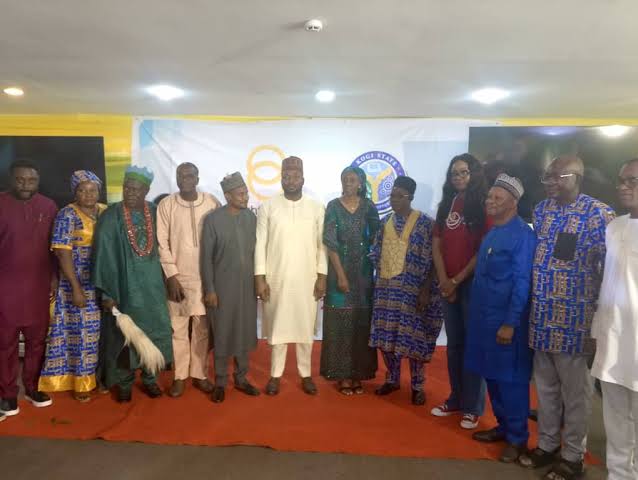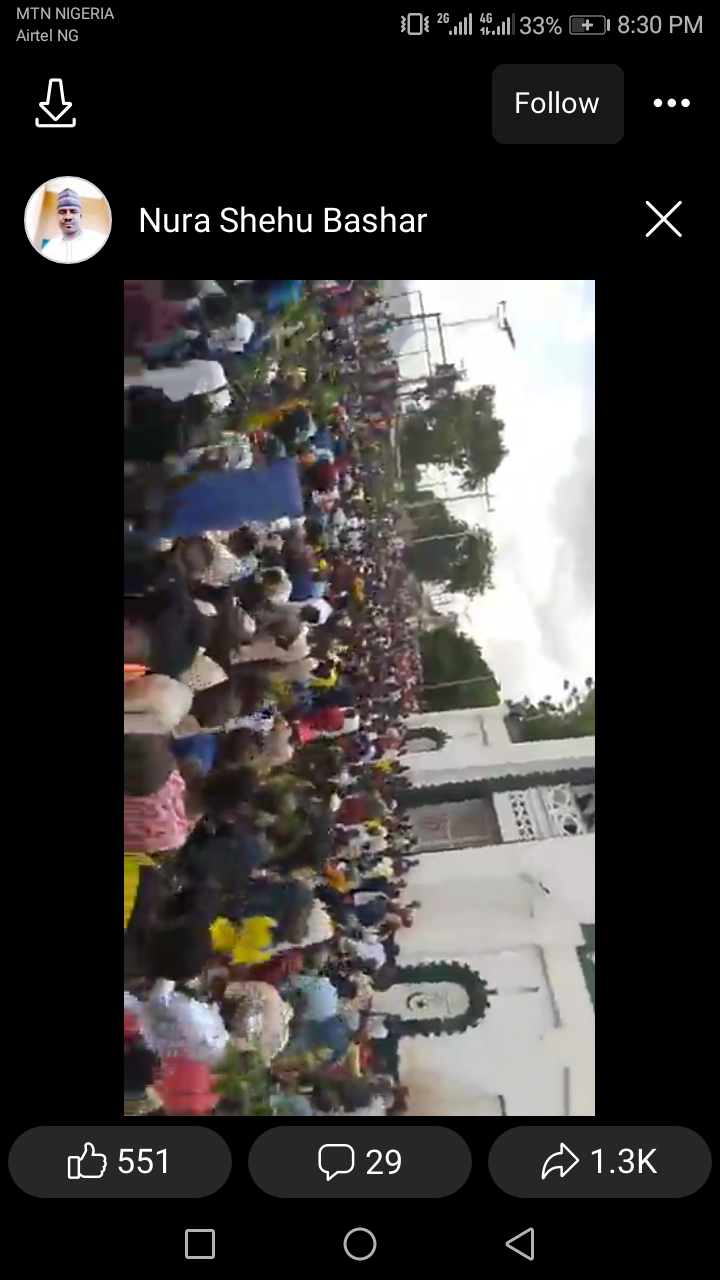Details of the Director-General, NIHOTOUR, Nura Sani Kangiwa’s impact in improving tourism education in rural areas are compiled in a press release issued by Joesef Karim, Head, Research and Development Unit, For: National Institute for Hospitality and Tourism, NIHOTOUR.
The National Institute for Hospitality and Tourism, NIHOTOUR, was established in 1987 following a tripartite agreement involving the United Nations Development Programme, UNDP, the International Labour Organisation and the Federal Government of Nigeria. The ideals and goals of establishing NIHOTOUR are to reduce the demand skills-gap in Nigeria’s hospitality and tourism sectors by providing bespoke hands-on trainings for personnel in the sectors at basic, intermediate and advanced levels.
Since then, NIHOTOUR’s training structure, faculties and programmes have evolved from a modest pioneer campus in Bagauda, Kano State, to a multi-campus educational citadel with training facilities across the 6 geopolitical zones of Nigeria. Notwithstanding the increased number of NIHOTOUR’s training locations, the Institute has over the years of establishment struggled to fulfil her primary training mandate, for several reasons including paucity of operational funds, major public ignorance of NIHOTOUR’s existence and lack of incentives for ineffective students’ enrolment programs, among other limitations.
The recent appointment of Nura Sani Kangiwa, in September 2020, as the Director General of NIHOTOUR has greatly turned the fortunes of the Institute for good. NIHOTOUR is now the most visible and the leading tourism and hospitality agency of the Federal Government in Nigeria. In 4 years, from September 2020 to August 2024, the Management of NIHOTOUR, led by Nura Kangiwa, has significantly repositioned the Institute by implementing innovative tourism training regimes for the tourism industry’s capacity development. The Management also introduced tourist host community vocational skills acquisition programmes for indigent residents to make a living by providing local tourist services for visitors through niche tourism entrepreneurship.
In the last for years, some of the headline achievements of the revived NIHOTOUR include upgrading and expansion of campuses, from 8 in 2020 to 12 by 2024; introduction of Gastronomy tourism studies and annual festival in Nigeria to facilitate better cultural tourism destinations; innovation and implementation of Sustainable Tourism Entrepreneurship Program, popularly called STEP, a hospitality trades and tourism skills transfer programmes targeting rural host communities; massive capacity development trainings of Nigeria’s tourism operators and practitioners including tour operators, travel agents, chefs and others in the value chain.
The period also saw a sustained tourism and hospitality train-the-trainer programmes for local instructors across Nigeria’s six-geopolitical zones; the awakening of Nigeria food tourism through hosting of elaborate ‘NaijaFoods’ at public and private sector events to share knowledge of the country’s cuisines competitiveness; acquisition of state-of-the-art mobile training kitchen trucks to facilitate hospitality crafts trainings in Nigeria’s hinterlands and underserved communities; and facilitating legislation of tourism trainings and personnel regulations for best practices through the NIHOTOUR Establishment Act 2022. In addition to the training mandate, the Act empowers NIHOTOUR to Train, Certify and Register all personnel working in Nigeria’s hospitality, travel and tourism sectors.
Evidently, the training mandate of NIHOTOUR has never been more accomplished than in the last 4 years of Kangiwa’s tenure as Chief Executive Officer of the Institute. The combined regular residential (on campus) trainings and special intervention (off campus) training programmes of NIHOTOUR, in the past 4 years, have resulted in verifiable skilling, reskilling and upskilling of over 50,000 entry level workers; and 10,000 middle and management level personnel in the sector. Within the same period of September 2020 to July 2024, NIHOTOUR championed and sustained tourism studies in Nigerian Secondary schools across the country with over 20,000 secondary students tutored and academically equipped for future tourism administration and operation in Nigeria, as a career path.
Notwithstanding the achievements of NIHOTOUR Management in the past 4 years, the Institute is still largely not sufficiently funded. In fact, in the last four years, the actual capital budgetary allocation for NIHOTOUR is less than Five Hundred Million Naira. As such, the comparatively higher numbers of completed NIHOTOUR trainings and programs in these past 4 years have been driven by Federal Government’s budgetary allocations, based on National Assembly members recommendations, for their Constituency Projects to target fully funded rural host community hospitality craft and tourism skills development trainings.
It is some of the constituency projects that have crystallised into NIHOTOUR’s spectacular skills and empowerment initiatives like STEP and Train-the-Trainer programmes executed across Nigeria in far-flung constituencies and communities with hitherto no formal schools nor training centres until NIHOTOUR’s recent involvement with constituency projects’ local tourism trainings.
Constituency Projects are officially called the Special Intervention Projects, SIP or Zonal Intervention Projects, ZIPs. The system was introduced in the Obasanjo administration. The Appropriation Act mandates MDAs to implement their budgets including ZIPs and all constituency projects, as duly appropriated and signed into law, irrespective of their nature.
Constituency projects typically refer to specific development projects or initiatives undertaken by elected representatives (mainly members of the National Assembly) to address the needs of their constituents. These projects are often funded through the public budget and are intended to benefit the local community within a particular electoral district or constituency. They can vary widely in scope and nature, ranging from infrastructure development (such as road construction, solar streetlights, bridges, schools, hospitals) to social welfare programs (such as healthcare services, education support, poverty alleviation initiatives). The specific projects chosen by representatives often reflect the priorities and demands of the communities they serve.
The determination and allocation of Constituency Projects are the responsibility of the National Assembly and the Executives. In most cases, allocation of Constituency Projects to MDAs are done without recourse or inputs from any of the executing agencies where the projects are domiciled. Since inception, in the Obasanjo era, most MDAs in Nigeria receive such Constituency Projects in their annual budgets.
As an agency of the Federal Government, NIHOTOUR’s obligation is to ensure compliance with the Appropriation Act by supervising the implementation of constituency projects while strictly adhering to rules and guidelines of the Procurement Act in conjunction with Government approved contractors and external consultants who are specialists in particular Constituency Projects.
By law, MDAs including NIHOTOUR, are only entitled to keep 5% Administrative Charge of the appropriated constituency project for supervision of such constituency projects. It has been parts of these 5% charges that NIHOTOUR deploys to execute specialized tourism and hospitality training programs, provide various interventions and support for tourism private sector organisations.
The advent and records of successes of Nura Sani Kangiwa as the Director General of NIHOTOUR are second to none in the 35 years of the Institute. He has established a formidable Management team that has in 4 years transformed an obscure tourism training centre to a national and internationally recognised hospitality and tourism enterprise education citadel in West Africa.




